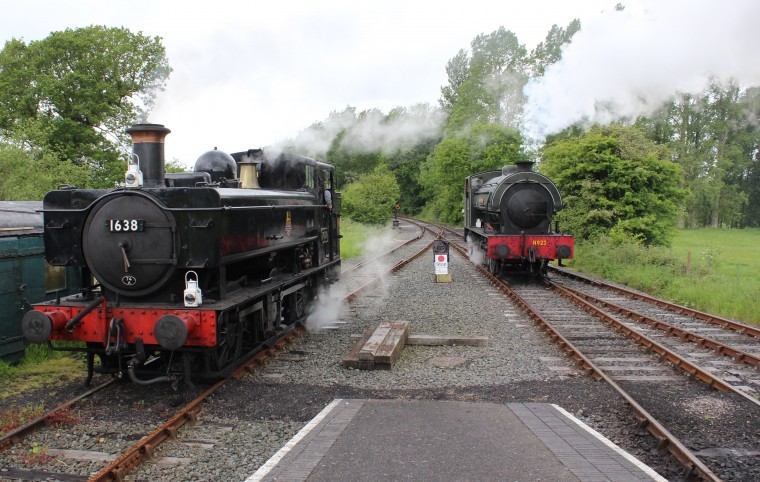Highways England is objecting to a controversial railway line which will split two farms in East Sussex.
Their objection is to a Transport and Works Act order (TWAO) application by Rother Valley Railway, a group of rail enthusiasts who want to push a new two mile stretch of line through the two farms between Bodiam and Robertsbridge Junction.
Rother Valley Railway have to have TWAO approval from transport secretary Chris Grayling before they can start work on the line and buy the land from the farms by compulsory purchase order. Both the farming families involved – the Hoads at Parsonage Farm near Robertsbridge and the Ainslies at Moat Farm near Salehurst – are opposing the line and backing The Great Robertsbridge Train Robbery, a protest group and website set up to stop the project.
The £7 million line will need a level crossing on the A21, the main road linking the M25 and the south coast. Highways England is Mr Grayling’s own agency responsible for the strategic road network which includes the A21, which is why the agency was consulted about the line. Although Rother Valley Railway already has planning permission for the new line, they have to have a TWAO approved separately for the new level crossing.
Highways England says the works proposed by Rother Valley Railway for the A21 were “inadequately prepared” and “may result in severe harm to the safe and effective operation of the strategic road network.”
The agency asks Mr Grayling to delay progressing the line so there can be discussion between Rother Valley Railway and Highways England. However, if its objections cannot be resolved, Highways England says Mr Grayling should decline to make the TWAO.
Sally-Ann Hart, portfolio holder for tourism, culture and the public realm on Rother district council, said she was opposing the TWAO because the line and level crossing would disrupt the A21 and impair economic growth in Hastings and Rother. “There will be very little benefit to tourism from this,” said Ms Hart. “Yet the socio economic impact on the livelihoods of people in Hastings and Rother using the A21 will be very great.” Former home secretary Amber Rudd, the MP for Hastings and Rye objected to the line at the planning application stage, because she favours further dualling of the A21 and the level crossing would interrupt traffic movement. Ms Hart agrees with this argument, and she said it was “disquieting” that Rother Valley Railway would contemplate compulsory purchase of farmland for the new line. “They already have a tourism business,” she said. “The new line – which is an extension – won’t attract that many extra tourists, and the socio economic costs will be high.”
Trevor Streeter, a spokesman for Rother Valley Railway, said that when the railway had spoken to Highways England in the past, the agency had no objections to the line. “They had no objection to the planning application, and we have been working with them for eight years on relevant studies.” He added that the trains could not run during rush hour on the A21, and the level crossing barrier would only be down for two minutes. “The maximum speed the trains are allowed is 25mph, and they will be up to that by the time they reach the crossing.”




